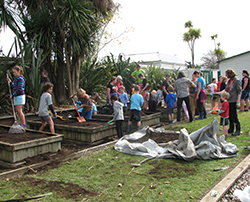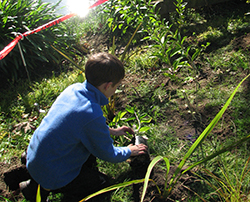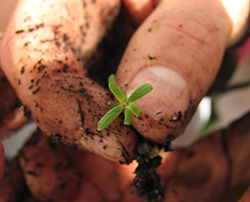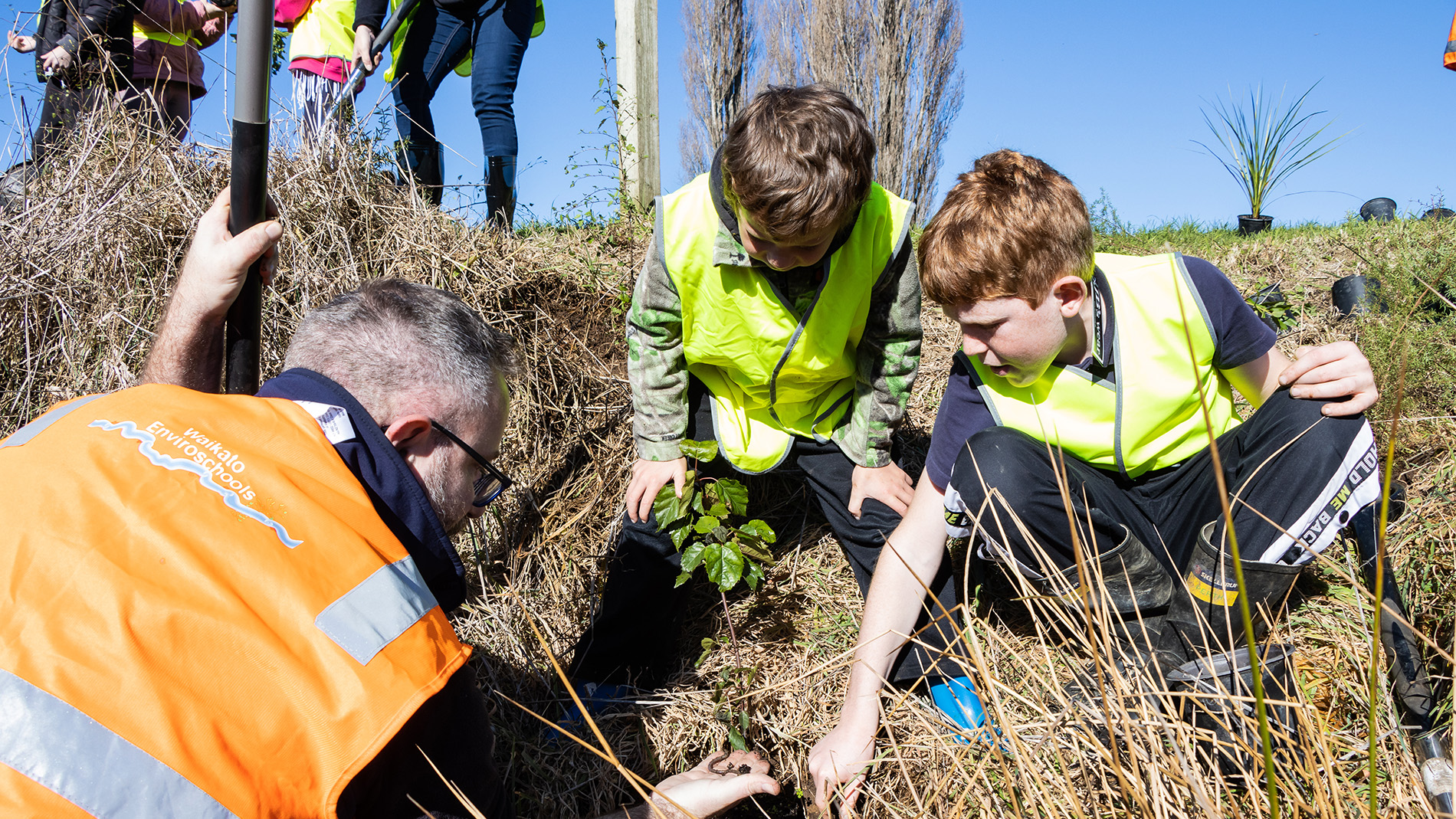What are Enviroschools?
Environmental education for sustainability is an action-focused approach to learning that uses the physical, social, cultural and political aspects of our environment.
Enviroschools are based on the principle of sustainability. Sustainability is a way of being and acting that nurtures people and nature, now and in the future.
The Enviroschools Programme is designed for all schools and holds young people and their ideas at its heart, aiming to integrate environmental education into the whole of school life. Students are able to take part in planning, designing and changing the school’s environment to make it a healthy, stimulating and sustainable place. Students are empowered to become active environmental citizens for life.
The Waikato Enviroschools programme is supported by Waikato Regional Council along with district and city councils.
Our commitment
The Enviroschools programme is offered to schools in return for a commitment to:
- engage as a whole school in a journey towards sustainability
- enable students to take action on real-life projects
- share successes and challenges with the Enviroschools network
- participate in networking events and professional development opportunities.
Our approach
The Enviroschools Programme is a whole school approach to learning where students plan, design and create a sustainable school with the support of their community.
The programme was designed with primary and intermediate schools and is now being adapted by secondary schools and early childhood providers. By becoming an enviroschool your school can benefit from improved classroom and outdoor surroundings, improved efficiency in the day-to-day running of your school, improved school management and better relations between staff, students and your school’s community.
Working with the curriculum
Enviroschools work within the curriculum framework and Guidelines for Environmental Education to make learning a practical and fun experience. There is no fixed formula for being an enviroschool, rather there are the following key values and concepts:
 Sense of place
Sense of place
The whole school environment is a learning resource.
 Participation
Participation
Involving the whole school community, including students, teachers, caretakers, boards of trustees, families / whānau and the wider community.
 A sense of purpose
A sense of purpose
Students are inspired to create a healthy, peaceful and sustainable school.
Benefits of being an Enviroschool
-
Enviroschools can benefit from improved physical surroundings, inside the classroom and outdoors.
Careful planning and design of a school’s physical surroundings ensures:
- classrooms are healthy and environmentally friendly
- waste is recycled and composted as much as possible
- the school incorporates and is in harmony with local ecosystems and wildlife
- the school’s environment recognises and preserves significant landmarks.
Physical surroundings
Day-to-day running of your school
Working with the community
School management
Adding value to the curriculum
Enviroschools are able to add value to the prescribed curriculum by integrating various areas of school life. This helps teachers and students to:
- make use of all learning experiences, including play
- draw on the combined wisdom of our multi-cultural community
- create opportunities for student environmental action
- encourage critical questioning of resource use and lifestyle
- promote reflection on personal values and behaviours.
The first unit students study in the Enviroschools process is called ‘Me in My Environment’. Students explore the total environment and contribute to a ‘Whole School Vision’. Environmental education can be integrated with your school’s physical surroundings, operational practices and organisational principles through the following five theme areas:
- Living Landscapes
- Ecological Buildings
- Healthy Water
- Precious Energy
- Zero Waste.
News and links
Waikato Enviroschools newsletter
Our newsletter is produced quarterly.
-
Waikato Enviroschools Newsletter - November 2025
3.9 MB
-
Waikato Enviroschools Newsletter - August 2025
4.9 MB
-
Waikato Enviroschools Newsletter - June 2025
4.6 MB
-
Waikato Enviroschools Newsletter - February 2025
4.3 MB
-
Waikato Enviroschools Newsletter - November 2024
4.3 MB
-
Waikato Enviroschools Newsletter - August 2024
5 MB
-
Waikato Enviroschools Newsletter - May 2024
4.1 MB
-
Waikato Enviroschools Newsletter - February 2024
2.5 MB


